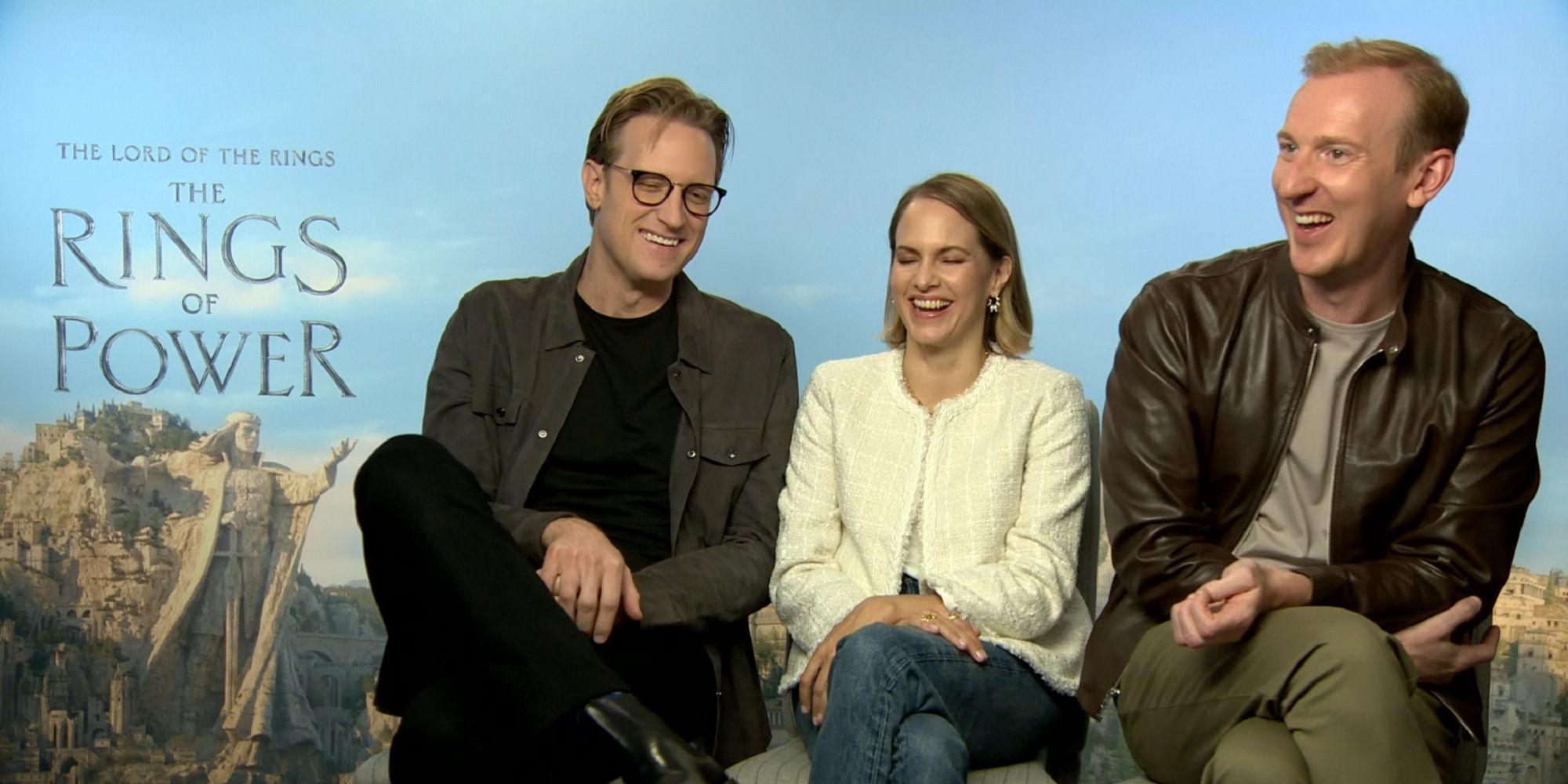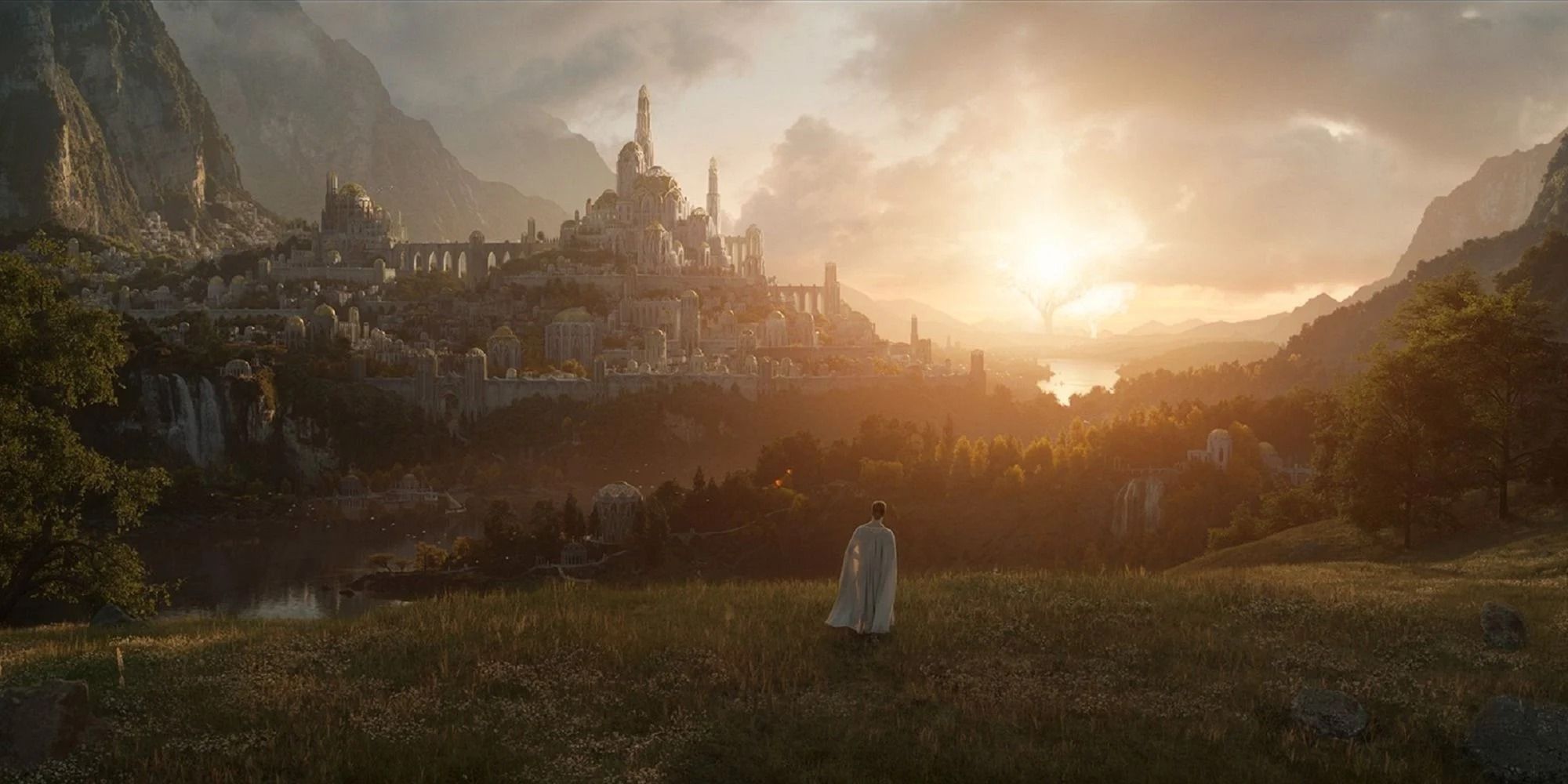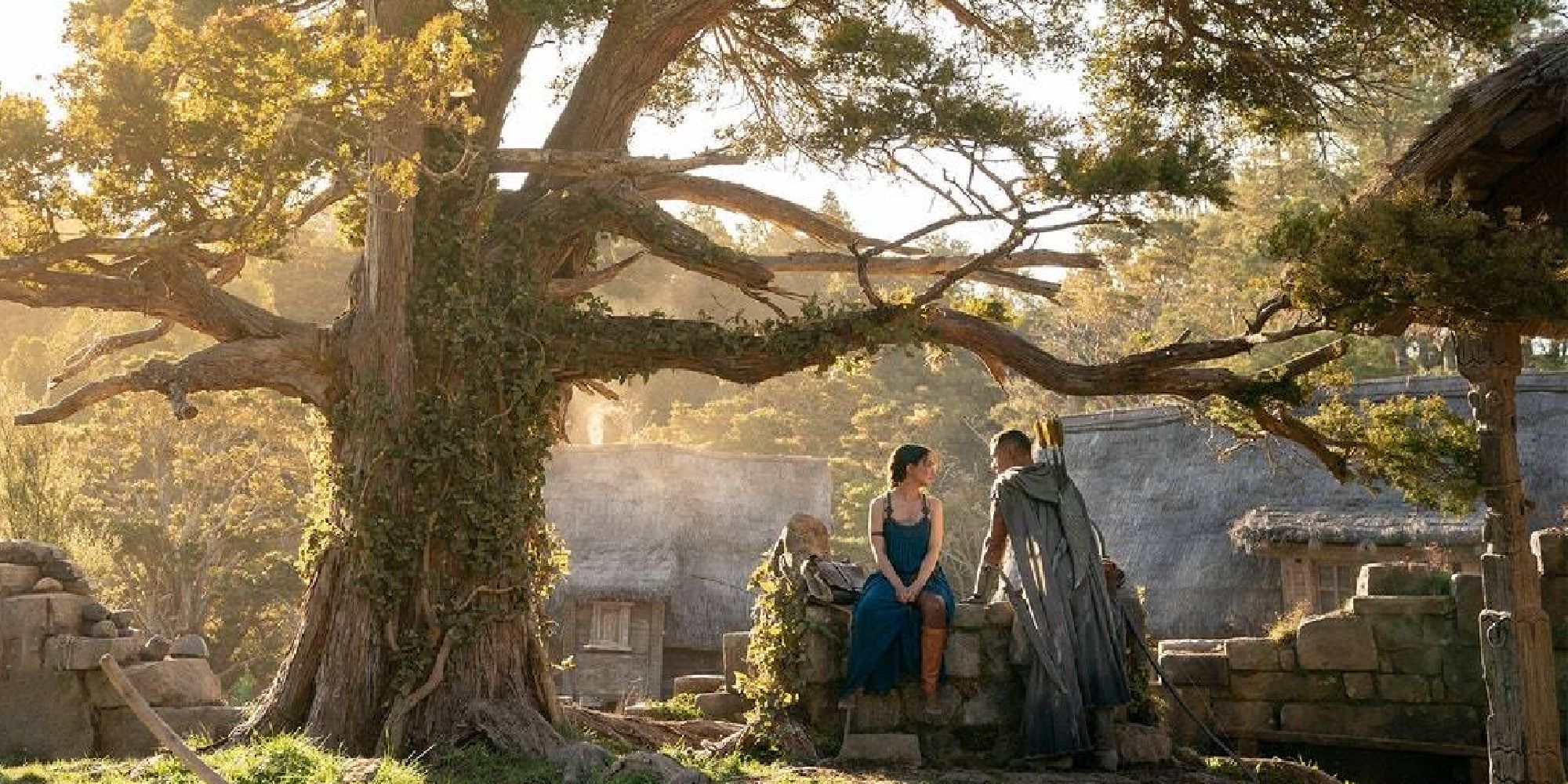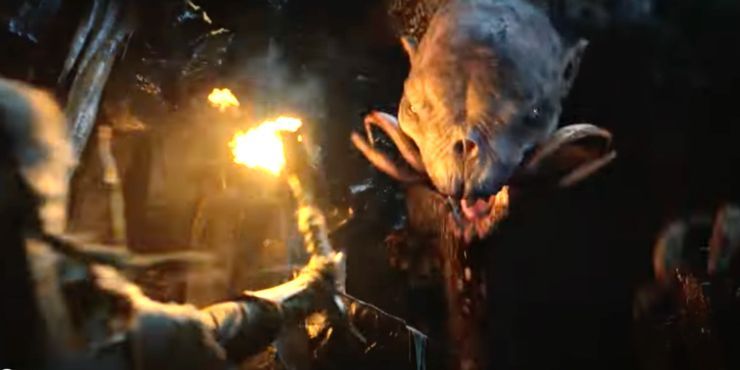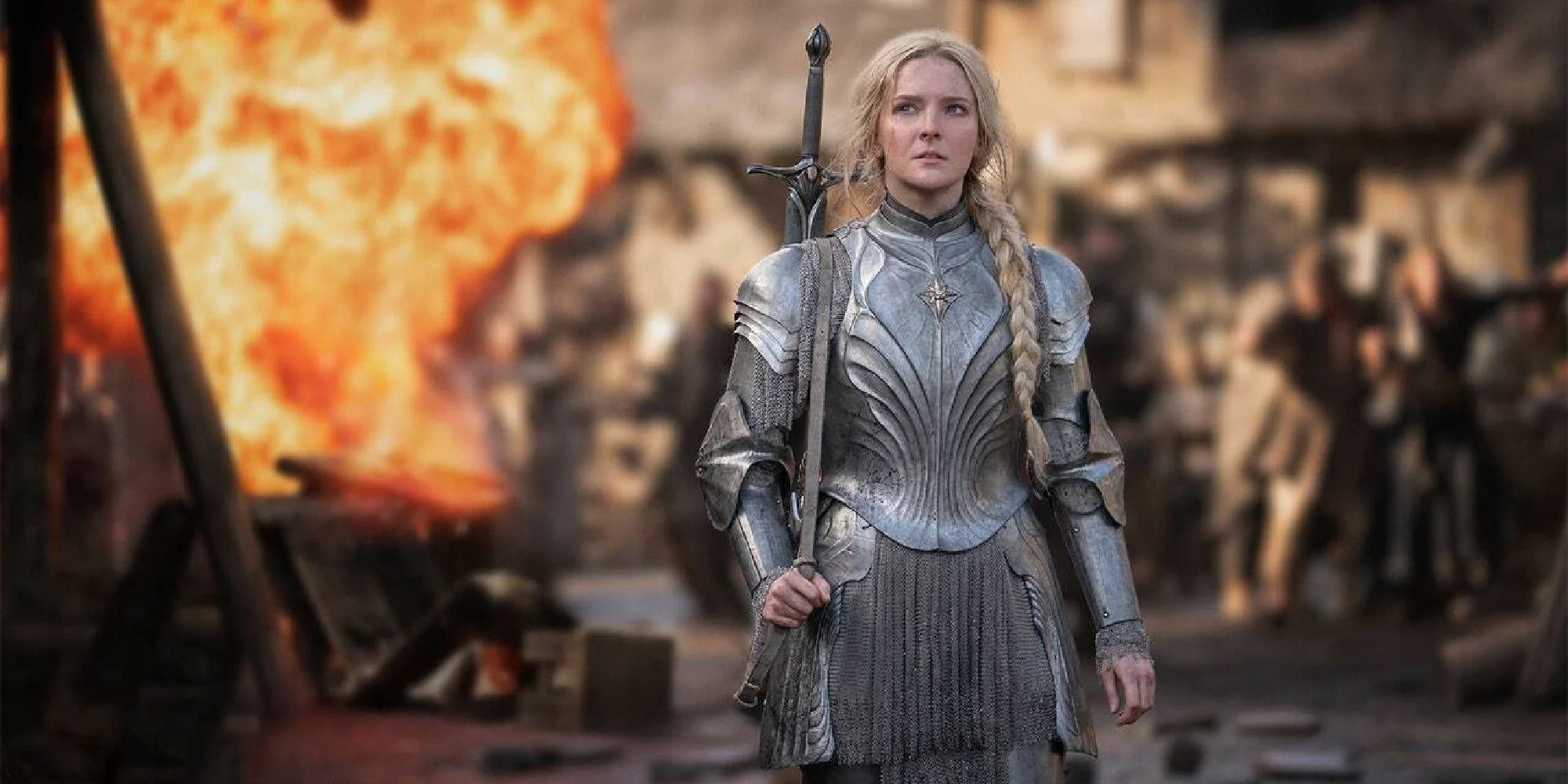“Some people would like you to make a documentary of Middle-earth,” The Rings of Power showrunner JD Payne tells TheGamer. “We [Payne and fellow showrunner Patrick McKay] have been working on historical adaptations of other things throughout our careers, and it's not a new thing for dramatists to do: you have history, and there's things you do when you're translating it from one medium into the next to make it dramatic and to make it into a storyline.
“We figured that some people might raise an eyebrow at it, but we hoped that the storytelling would be engaging enough that they would come in and just enjoy being in Middle-earth.”
After a quarter of a century of collaboration, you’d almost expect Payne and McKay to have had the same experiences of Tolkien, but that’s not the case. The pair had different routes into Middle-earth, with McKay reading the books first and Payne finding the Jackson, Boyens, and Walsh films before diving headfirst into the deepest depths of Tolkien’s writing. Neither comes across as more or less knowledgeable about Tolkien than the other, and arguably perfectly represent the audience of The Rings of Power, although most film-lovers won’t have gone as deep into The History of Middle-earth as Payne.
“Having different sensibilities for what Middle-earth is maybe helps,” says McKay. “But I think in this particular case, with this show, we just had a really clear idea of what was Tolkien and what was important to him. The more we read and the more we thought about it, the more we felt that Peter Jackson's amazing films had captured so much of it, but there was even more in there that couldn't even fit in those movies. And we felt like there was more there to tap into and hopefully bring to the screen. And as long as we felt anchored in the books in hopefully a real deep way, we felt pretty good about the path we're on.”
Despite some of their own additions to the canon, that path doesn’t stray far from Tolkien’s writing. The showrunners have been repeating a mantra throughout interviews to show their decision making process: “we go back to the text.” Every decision they make apparently has some basis in some text that Tolkien actually wrote, despite the fact that he wrote surprisingly little about the Second Age, when The Rings of Power is set. I pressed them on how this actually manifested on a day to day basis.
“We start every day in the writers' room with a quote from Tolkien,” explains Payne. “As we're working on the actual words on the page, there are times where there's a word you're using where you're like, that word doesn't feel quite Tolkienian, [so you] Ctrl-F and go through your e-texts of the complete works – did Tolkien use that word a lot, [or] ever?”
At this point, fellow showrunner McKay jumps in to further explain, and you can see why they come as a pair and how they work as a team, to the extent of finishing each other’s sentences. “Sometimes it's like, ‘well, he used it a couple times, but didn't really use it the way we're using it, so we can't do it,’” McKay says. “We wanted the lexicon of the show to be Tolkienian.”
“We also worked with the Tolkien Estate, and additionally Simon Tolkien volunteered his time as a consultant on the show,” adds executive producer Lindsey Weber. “We had a stable of Tolkien experts and scholars that we worked with along the way, on set, and early on as we're breaking the story, people that the fans probably know and love. For us, meeting them just as fans was a huge honour. [They were] people like Tom Shippey, John Howe, and Carl Hostetter, so we had a lot of support.”
These are household names to any Tolkienist, and they add an air of legitimacy to the show, soothing some fans’ worries about the show contradicting the existing canon or making unnecessary and unTolkienian additions. After the first two episodes, I came away impressed with how well The Rings of Power’s own additions fit into the existing framework and how Tolkienian they felt, especially in the Southlands. I still have my questions, but it’s early days and I’m not expecting everything to be perfect right off the bat.
When it came to testing the limits of Tolkien, Payne likens it to stretching a rubber band, but making sure not to break it. The contentious time compression was quite an easy decision for them because they didn’t want human characters to be dying off every couple of episodes, but Payne notes that, “there are other things along the way that were like ‘that just feels like maybe a little outside, let's bring it back over here.’”
You get the feeling that Payne and McKay could have spent another two and a half decades together just planning this show and preparing everything in even more meticulous detail than made it to screen. The pair freely admit that Weber was a powerful driving force behind the production, and that The Rings of Power wouldn’t have the same impact on-screen without her involvement.
“On screen the amazing Morfydd Clark is our Galadriel, but behind the scenes you are our Galadriel,” Payne says to Weber. “When Lindsey has a challenge in front of her, there's no one else that you would want on your team more than her because she will pursue it in the most intelligent –”
“There's no one you'd rather ship off to Valinor,” McKay interjects.
Payne continues once the laughter has subsided, “There's no troll she won’t slay, and there's no fight she won't take on when she is pursuing the right thing. And it's amazing to have her on the team.”
“She's also, in our show, deeply flawed and makes mistakes, which I am as well,” adds Weber herself. “But perhaps I share a tad of her stubbornness, which I'm self aware enough to know.”
Sometimes it takes a bit of stubbornness, alongside the experts and the rubber bands, to get a show of this scope and scale actually made. And if anyone knows how to get things done, it’s The Rings of Power’s Galadriel and, clearly, Lindsey Weber.

